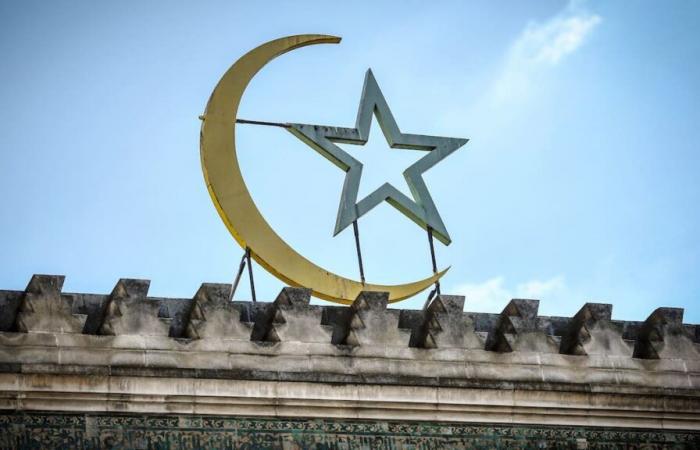We talk a lot about “religion”, “religions” and “religious” in Quebec at the moment.
The speech is roughly as follows: the invasion of religion in our societies would be very worrying, and today we should go to the end of its repression from public life, in particular by ceasing to finance “religious” schools “.
This story is obviously inherited from the Quiet Revolution, and we understand that it still resonates in the collective unconscious of Quebecers – and even in their collective consciousness. Traumatized by a certain Catholicism, Quebecers tend to consider that there is such a thing as religion, then subdivided into particular religions, equally bad, or at least toxic.
But this analysis grid does not allow us to understand what is happening in Quebec at the moment.
The secularization of our societies seems complete, they are more than ever indifferent to their historical religion, Christianity, and prefer to curl up in counterfeit spiritualities, such as new agewhen they are concerned about the afterlife.
Let’s sum it all up with one formula: it’s not religion that’s coming back, it’s Islam that’s coming. It happens in our society, and in all other Western societies.
I say it right away so that no one misunderstands me: Islam is a perfectly honorable religion, and it has the right to feel at home in what could be called its historical or natural zone. I add, on a very personal basis, that I am not one of those who loathe the religious phenomenon in itself.
However, the thing becomes more complex when Islam establishes itself massively in the West, following the great migratory currents of our time.
Especially since Islam, whatever we say, does not integrate as easily as we would like into our societies, to the extent that it does not present itself simply as a personal faith, but as a religion intended to structure social and public life. He seeks less to adapt to the societies where he settles than he intends to force them to adapt to him.
It arrives in our societies carried by an ideological, cultural and demographic dynamic, which profoundly destabilizes Western societies.
We will add, because this is not a detail, and because we need to think over the long term if we want to understand the dynamics of human societies, that Islam is driven in certain respects by a form of historical revanchism.
The best historians have long known it: the tension between Islam and the West spans the centuries. It even embodies the idea of the clash of civilizations theorized by Huntington.
Popular culture had also recorded this reality: you only need to have in mind the figure of Charles Martel to be convinced of it, even if today we tend to ridicule him. It is enough to have in mind the Reconquista to be convinced of this too – it was long considered a glorious page of our civilization, even if today we seek to reverse its meaning, in addition to neutralizing it through fabricated myth of a luminous and cosmopolitan Andalusia.
The Western world, in fact, seems to no longer understand its own history, which leads it to no longer understand its own identity.
Islam experienced a great awakening in the 20th centurye century, in a fairly radical form. The founding of the Muslim Brotherhood in 1928, which explicitly carried the project of an Islamic conquest of Europe, as Florence Bergeaud-Blackler remarkably demonstrated in her book Brotherhoodpublished in 2023, or the Khomeinist revolution in Iran, in 1979, which intended to bring Islam back to its fundamentalist definition, in other words, which converted it to Islamism, bear witness to this.
Westerners, for a long time, did not manage to understand this since they imagined the whole world engaged in a dynamic of secularization similar to theirs. Islam, from their point of view, was destined to experience the same movement as Christianity – its fundamentalist manifestations were thus perceived as the last spasms of a dying religious traditionalism.
This is what prevented them from understanding the scope of the Islamic veil in our societies – France’s error in 1989, at the time of the Creil veil affair, bears witness to this.
Naturally, we must distinguish Islam from Islamism, and constantly remind ourselves that not all Muslims are Islamists, obviously. The vast majority are resistant to Islamist terrorism, and this too must be emphasized. Many wish to live their faith quietly, in peace, without any aggression, and are true critics of Islamism. They want, above all, to live it in the Western way, when they settle into our societies, without trying to impose it on everyone. In this way, they demonstrate that they are compatible with our civilization. We should be careful not to reproduce here what they fled when they left their country of origin.
That said, Islamism is inseparable from Islam – it represents its pathological radicalization. And a society that gradually becomes Islamized will inevitably see Islamism grow within it. It will provide him with the necessary soil for this.
Above all, as I said a little above, Islam only established itself in the Western world, where it had until now only a marginal presence, with the massive immigration of recent decades. .
Who seriously believed one day that we could allow and even encourage the massive immigration of millions of people carrying cultures and a civilization profoundly foreign to the Western world, thinking that all this could happen without the slightest problem? The question of number remains the most fundamental here.
This is an elementary lesson in anthropology: cultures, and we should rather talk about peoples, who cohabit in a territory do not do so peacefully and are inevitably called upon to experience friction, to know which one will be the reference culture. This is why they are normally each inclined to constitute themselves as a State and to demand borders, to clearly mark the country where they are institutionalized as norms.
The history of the differentiation of cultures and nations merges with that of the multiplication of borders and States.
Because a culture is not just a series of personal preferences, it is not just a private family folklore, not intended to spill over into public life: it structures fundamental social relationships, relationships between the sexes. , the conception of modesty, the sacred, violence, property. This truth is even more obvious when we talk about civilizations.
Furthermore, we cannot equate the resistance of Westerners to the Islamization of their society and the customs of their respective countries with Islamophobia. Philippe d’Iribarne demonstrated in a decisive work that the accusation of Islamophobia had no basis in Western societies. Its title was precisely Islamophobia: ideological intoxication. He dissected this concept in fine detail by showing that Westerners easily accept the personal practice of a faith, but are not very enthusiastic when a religion-civilization seeks to unilaterally redefine the functioning of their society.
We could add that this concept seeks to put in the same bag the criticism of Islam, that of Islamism, as well as the simple observation of the very difficult integration of Islam in the West.
Intellectual stupidity, combined with ignorance and the naivety of a school child who thinks he is benevolent, pushes societies towards self-destruction. Only theorists and ideologues of multiculturalism were able to believe for a moment that diverse, peaceful and fruitful living together was possible, and even probable.
In their minds, the State had to become culturally neutral, and open to the diversity of identities by treating the culture of the host country as one identity among others, without specific rights. The only obstacle to this great multiculturalist conversion was found in the intolerance attributed to Western societies, refusing the challenge of diversity, precisely by refusing to each become an optional culture. In Quebec, from this point of view, the Bouchard-Taylor report, published a little over fifteen years ago, was Himalayan stupidity.
It was a logic that was both alienating and uprooting, contrary to an elementary principle, without which no civil peace is possible: in Rome, we do like the Romans. Western historical peoples now fear, with good reason, of becoming foreigners and minorities in their own countries. The fate of London, Brussels, Malmö, Seine-Saint-Denis, in France, and so many other territories in the Western world portends a sad future.
If Morocco and Algeria became predominantly Catholic countries, they would no longer be Moroccan and Algerian in name only. They would then have lost their identity. No one will wish that on them. Likewise, we must agree that a Western society which becomes predominantly Muslim, even if it does not become Islamist, would no longer be itself, and is entitled not to wish to become so.






